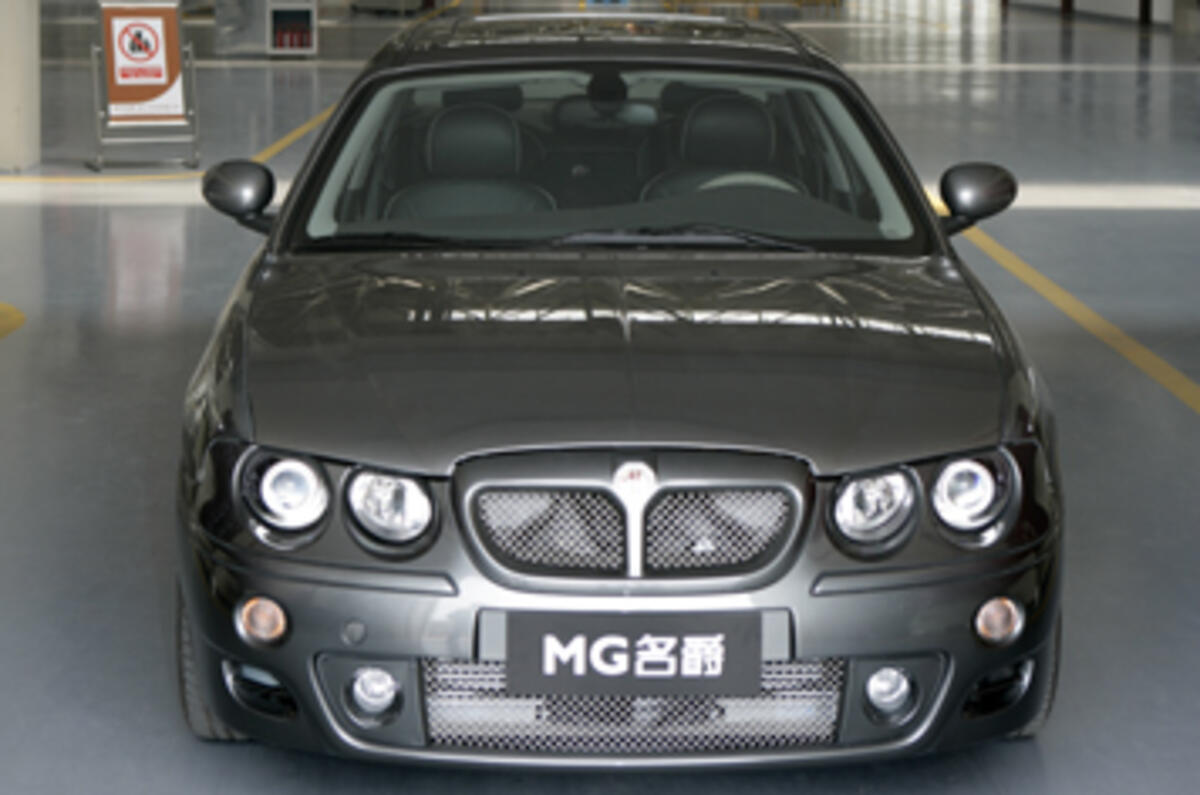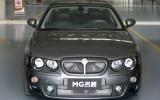What is it?
This is the Nanjing MG7, one of two new Chinese-produced versions of the cars previously known as the MG ZT and Rover 75. The other is the Roewe 750.
The MG7 is built in China using a production line shipped over from Longbridge in the UK. It's been updated for the Chinese market, too, and fitted with revised versions of the K-series engine (now Euro4 emissions-compliant, apparently more durable and called N-series).
What's it like?
Reassuringly British. This is the same supple suspension, and these the same cossetting bucket seats we tried for the first time on the roads of Britain back in the middle of 1998. The car’s manufacturing centre might have moved 8000 miles east and the people building it might be different in almost every way from the Cowley lineworkers who started it off, but this car is still close to the good old Rover 75/MG ZT in look, feel, image and quality.
NAC MG engineers have improved the MGZT without changing it much. The car has better-looking rear LED tail lights and new-style alloy wheels. The audio and heating/air conditioning systems are both updated, and there’s a better sunroof assembly. As a result of a Lotus Engineering development programme, the engine range (now comprising a 1.8 160bhp petrol turbo and a 190bhp 2.5-litre petrol V6) can meet Euro4 emissions standards. It also gets a five-layer head gasket aimed at correcting the old K-series engine’s best-known head-sealing fault. For now there’s no diesel for the MG7.
Nanjing’s new flagship comes in two wheelbases (MG7 and MG7L) and two equipment levels, Sport and Classic, which are distinguished by different bumpers and the fact that the Sport has a mesh grille while the Classic sticks to slats.
The Sport also gets stiffer suspension rates, though a European driver might not recognise them as such because every Shanghai auto executive you meet tells that that Chinese buyers like ‘relaxed’ suspension rates.
MG7 sales are just beginning in China (the first car is less than four weeks old) and NAC is still rather reluctant to reveal its domestic pricing. However, four-cylinder models seem to start around £14,000 with the top-spec V6 reaching upwards of £20,000.
Chinese buyers love ‘toys’, so MG7s come with rear-facing parking cameras and you can also get a neat, twin-screen DVD system for the rear.
Best of all, the MG7 has been refitted with the NVH (noise, vibration, harshness) package that was removed, along with some cabin fittings, during a cost-cutting exercise called Project Drive in the darkest MG Rover days.
We're trying a freshly built MG7 1.8T. It’s several years since I’ve driven a four-cylinder MG ZT, but this car seems notably quieter. The restored NVH pack helps, but the car’s inherent mechanical refinement, always one of its best characteristics, still compares well with class leaders. The steering seems a little heavier around the straight-ahead than I remember, but it still has that fluidity that distinguishes BMW designs.
The ride is flat and well damped even with five passengers and luggage. The engine feels strong, the gearbox gate is well defined and the whole car retains that sub-Bentley feeling of durable luxury that made the 75 a good car. To my cursory inspection, the MG7’s build quality looks fine, too.



















Add your comment